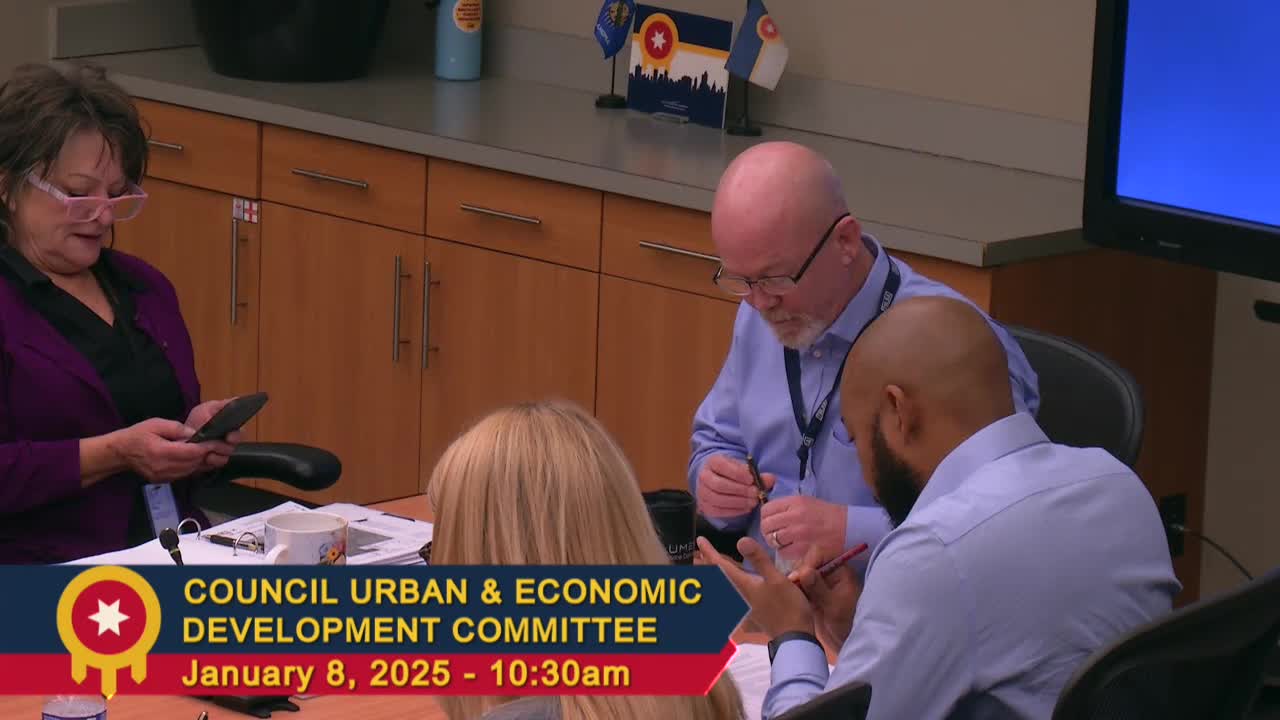Committee reviews multiple supplemental budget appropriations, including DOJ grants and opioid abatement funds
Get AI-powered insights, summaries, and transcripts
Subscribe
Summary
The committee reviewed a set of supplemental appropriations to the FY2024‑25 budget for grant awards from the U.S. Department of Justice, state asset forfeiture/revolving drug funds, and the Oklahoma Attorney General opioid abatement program.
The Urban and Economic Development Committee reviewed several budget ordinances to make supplemental appropriations in the FY2024‑25 budget for grant awards.
Budget staff described each ordinance's source and intended use. Jared Mortar of the city budget office summarized an approximately $2.5 million Department of Justice award for continued work with an assault‑response initiative; committee members were invited to ask questions about line items and asked for more detail on “other services” categories, which budget staff said are accounting bundles used for contracts and subscriptions under the Oklahoma Municipal Budget Act.
Another DOJ award — a Justice Assistance Grant (JAG) of $382,418 — was described as funding police operational needs, with $365,977 remaining for city uses and about $16,400 to pass through to the county under a memorandum of understanding. Budget staff said the police department intends to use this grant for equipment such as moving radar units and gas‑mask testing gear.
The committee also considered a $231,175 amendment composed of two items: about $50,000 in state asset forfeiture funds (for wireless communications and vehicle checks) and about $181,000 from the revolving drug fund (to cover subscriptions and GPS/tracking systems in the Special Investigations Division). Budget staff said detailed line‑item backup from the police department would be available for councilors who wanted a deeper breakdown.
Separately, the committee discussed a $700,000 award from the Oklahoma Attorney General’s opioid abatement program that the city will use for opioid and substance use disorder services. Health and recovery staff described a partnership with Tulsa Public Schools and the Fire Department: planned uses include prevention and training in schools, a civilian abatement resource coordinator to build referral databases, and peer recovery support specialists to accompany overdose survivors and connect them to services. “They only gave us 700,000 for 2 years. So we had to scale back,” Doctor Hubbard said, describing initial asks and the award level.
Staff and committee members discussed using the state opioid funds to seed programs and then pursue additional federal or Medicaid reimbursement and said the grant process at the state Attorney General’s Office is evolving, with board discussions expected to consider removing per‑applicant caps to allow larger awards.
For each ordinance presented, staff invited committee members to follow up for detailed budgets; no formal committee votes were recorded in the transcript.
